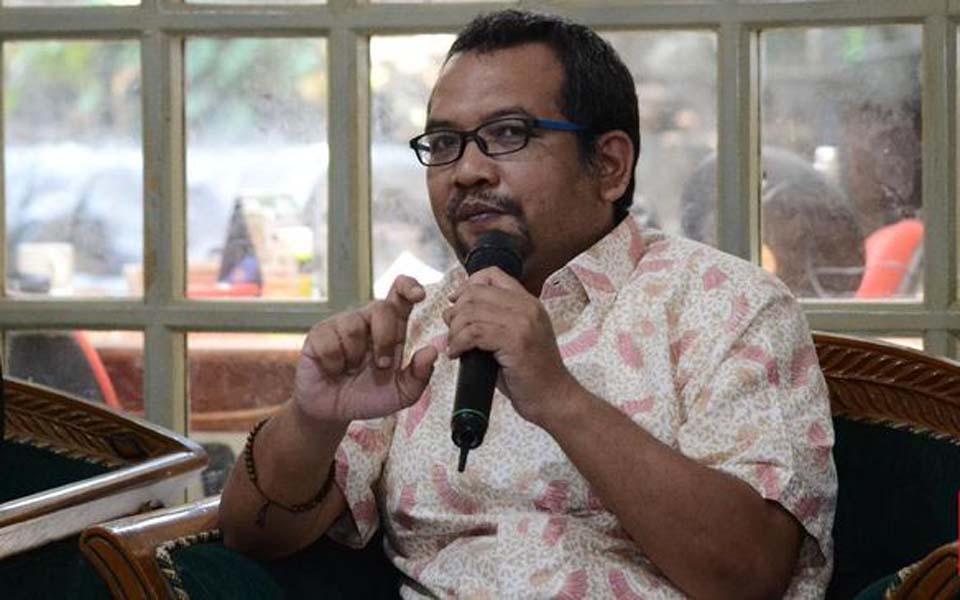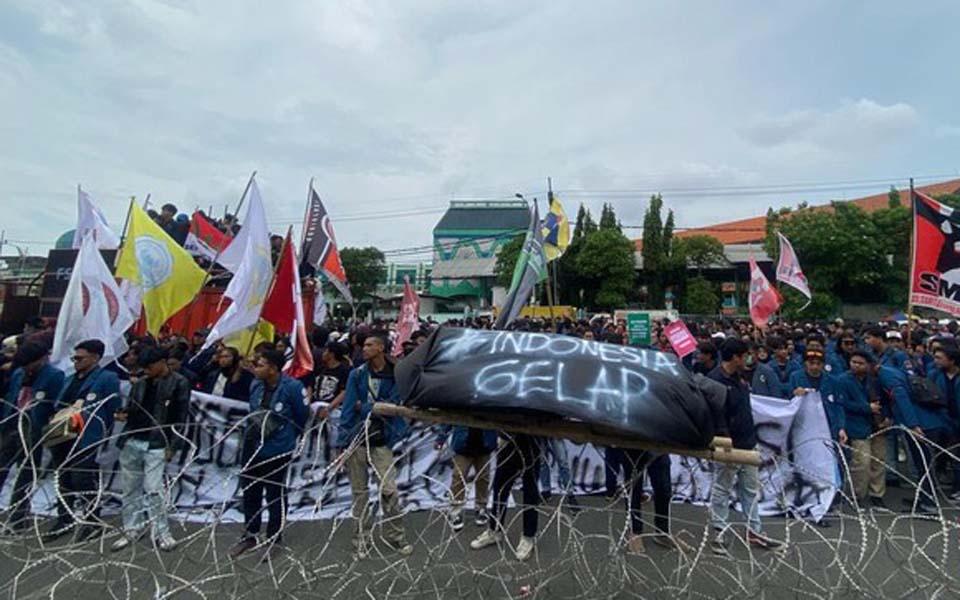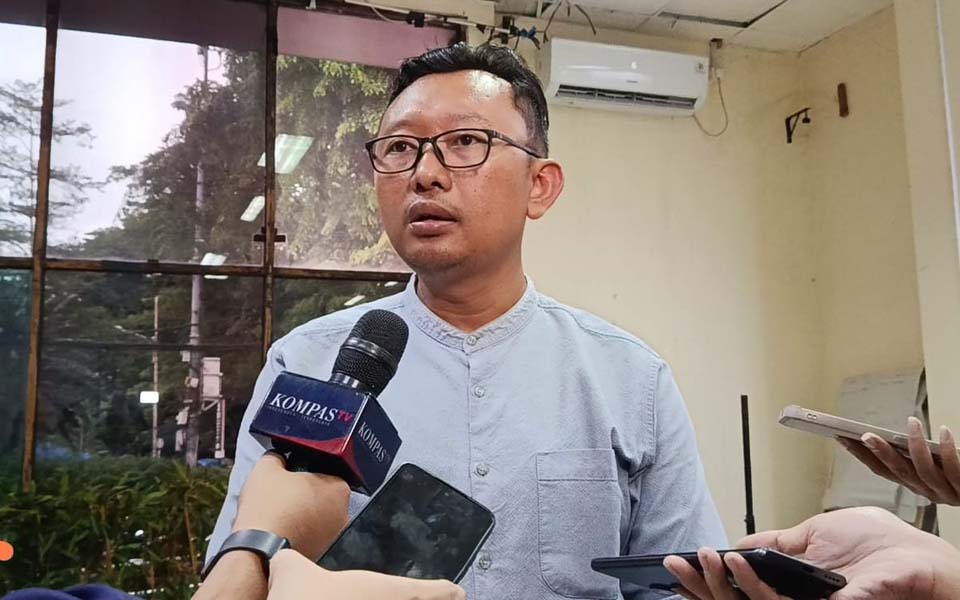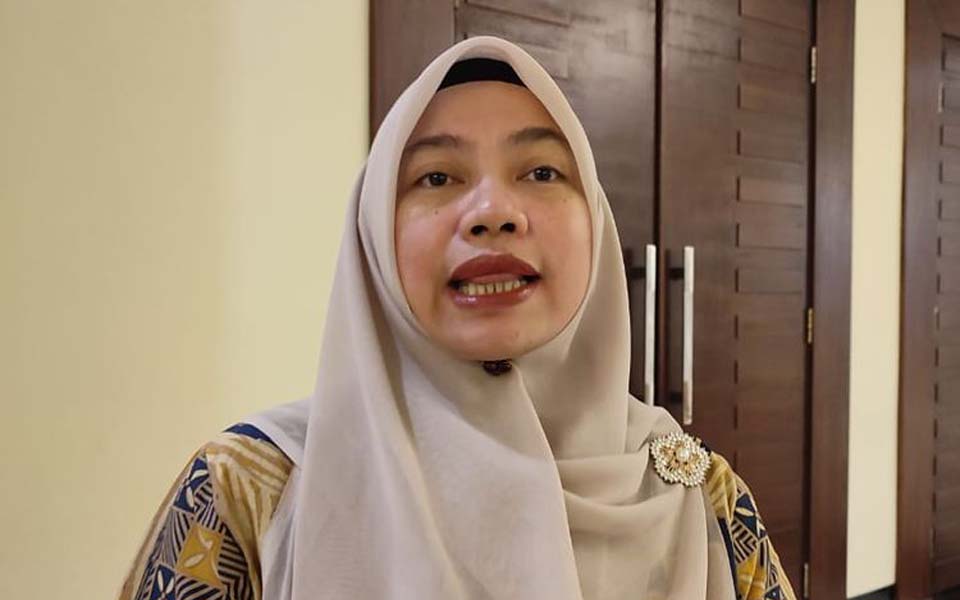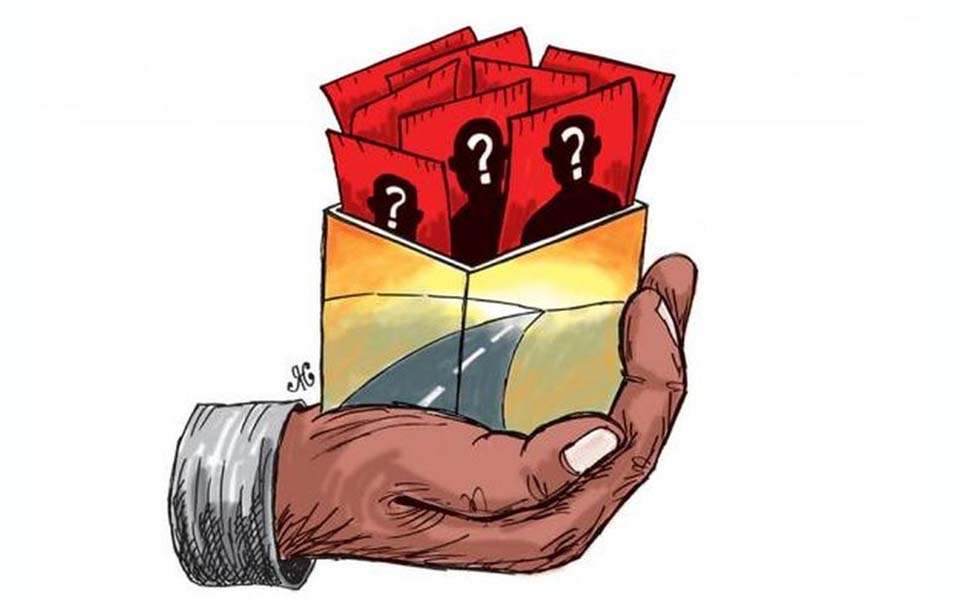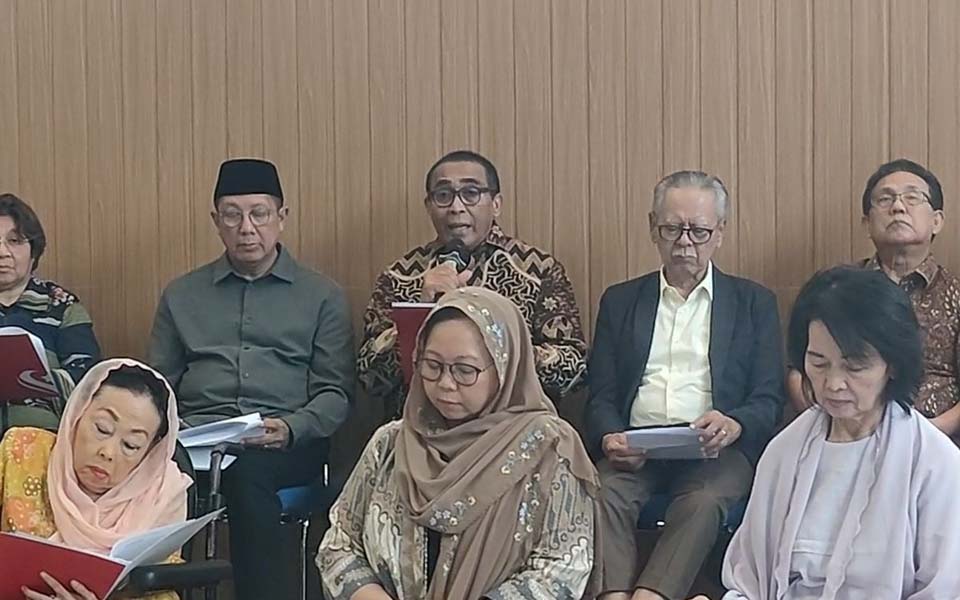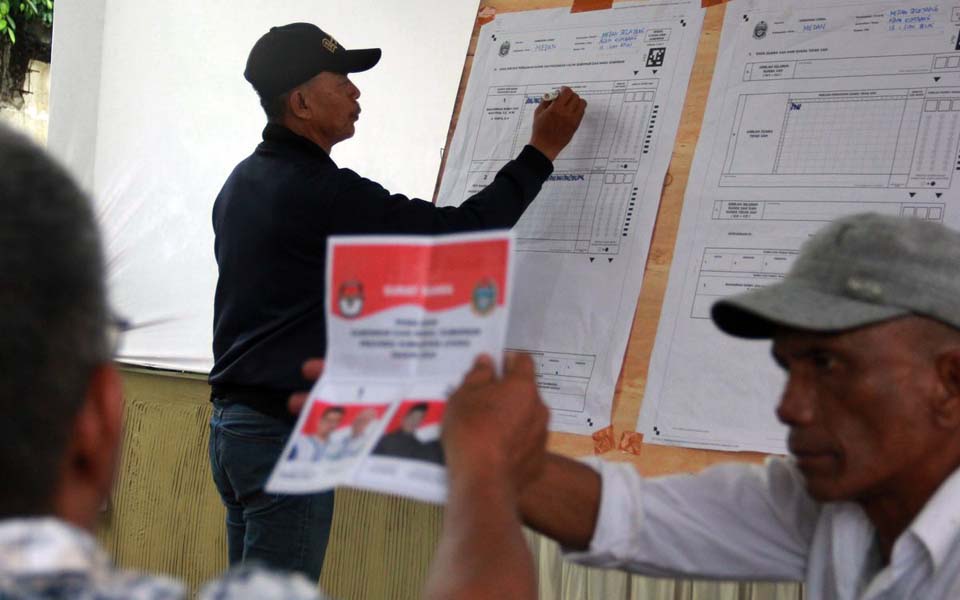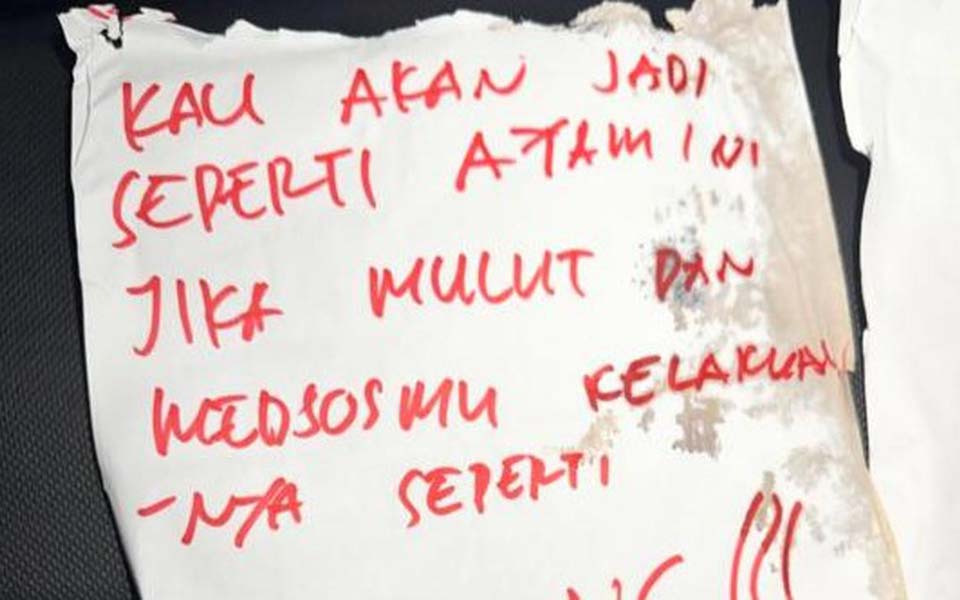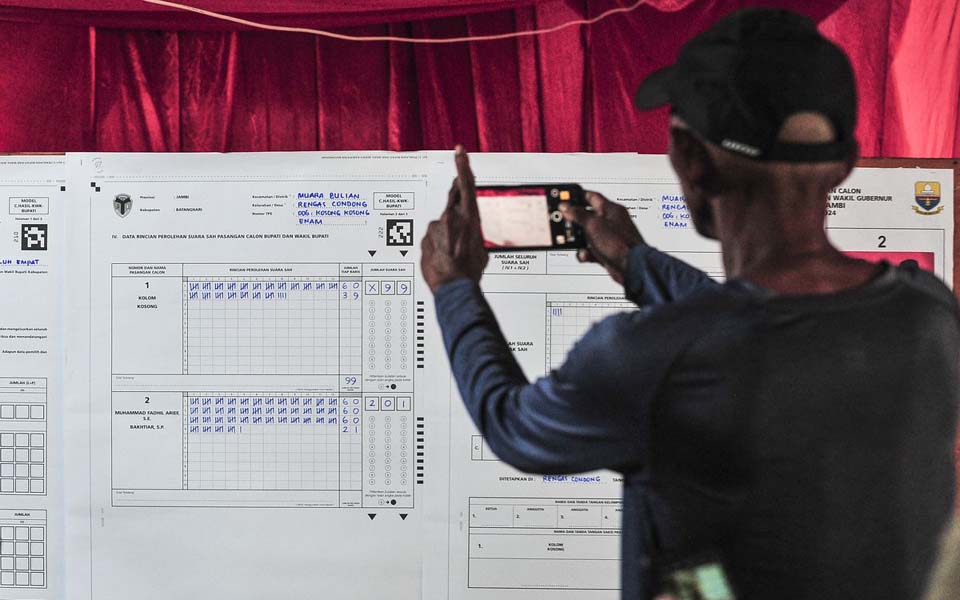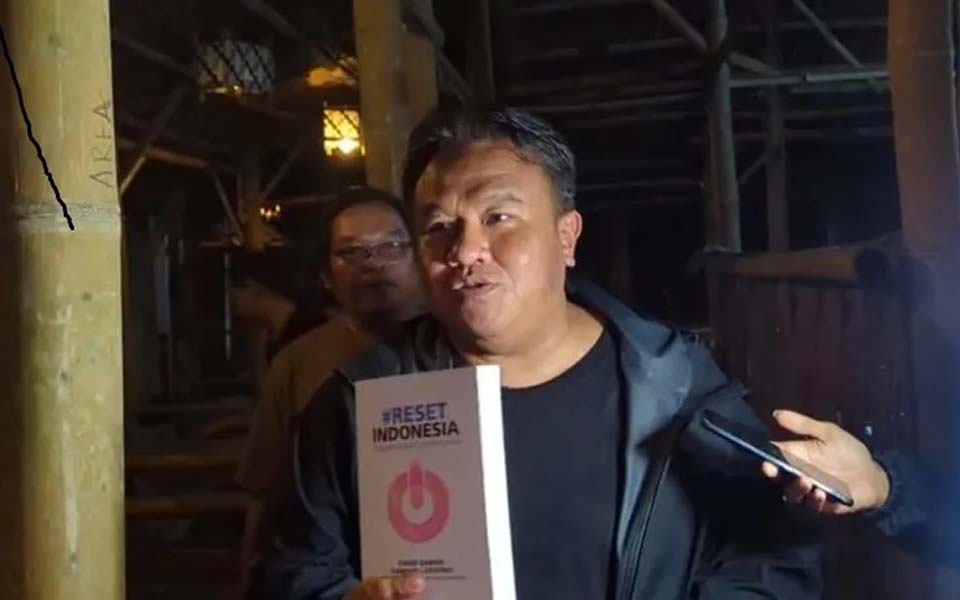Jakarta – The Institute for Criminal Justice Reform (ICJR) is protesting a statement by Coordinating Minister for Security, Politics and Legal Affairs (Menko Polhukam) Wiranto who stated that people who encourage others to golput – to abstain from voting – in the 2019 elections can be prosecuted by law.
IJCR Executive Director Anggara says that none of the three law cited by Wiranto, namely the Anti-Terrorism Law, the Information and Electronic Transaction Law (UU ITE) and the Criminal Code (KUHP) can be used to prosecute those campaigning for golput.
According to Anggara the threat of prosecution for those encouraging others to golput as conveyed by Wiranto will only create fear among the public.
“The ICJR is of the view that threatening to prosecute those who campaign for golput will in fact create unnecessary fear”, said Anggara in a press release received by CNN Indonesia on Wednesday March 27.
Anggara explained that Article 1 Point 2 of the Anti-Terrorism Law explicitly state that terrorism is an act which uses violence or the threat of violence which creates an atmosphere of widespread fear, causes mass causalities, causes damage or destruction to strategic vital objects, the environment, public facilities or international facilities motivated by ideology, politics or security disturbances.
“Based on this stipulation, it is actually clear what criteria must be fulfilled for an action to be subject to the Anti-Terrorism Law”, he said.
Anggara also explained that the spread of fake news related to the elections which causes large numbers of voters not to go to polling stations (TPS) also cannot be categorised as a terrorist act because it does not have the kind of impact outlined under the Anti-Terrorism Law stipulations.
In relation to the use of the UU ITE, he continued, the stipulations on actions which are prohibited under this law can only be used to prosecute things such as spreading information or electronic documents which contain violations of morality, gambling, blasphemy, defamation, extortion or threats.
The law also covers fake news which results in financial losses to consumers, information which gives rise to hatred and hostility, threats of violence or intimidation directed against individuals, illegal access to data, damaging electronic information and other such acts.
“There is not one stipulation in the UU ITE that can be used to prosecute the act of campaigning for golput as conveyed [by Wiranto]”, he said.
Not only that, Anggara said that under Articles 146 to 152 of the KUHP it is clearly defines what actions can be prosecuted in relation to elections. Article 148 of the KUHP states that obstructing a person’s right to vote can be prosecuted only if it is done through violence or the threat of violence and done when the elections are actually being held.
“This stipulation has content which is almost the same as Article 515 of the UU Pemilu [Election Law]. But, once again the ICJR believes that social groups campaigning for golput cannot be prosecuted using this stipulation”, he said.
Anggara also asserted that choosing to golput is part of a citizen’s right to express their ideas and is guaranteed under Article 28 of the 1945 Constitution (UUD 1945).
Furthermore, the right to declare a political choice is in essence a right which may or may not be used, so declaring that you will golput is actually a choice not use this right.
Also, said Anggara, the government’s response to the golput campaign by threatening to prosecute people clearly shows a growing trend towards “Penal Populism”, a phenomenon where harsh punitive policies are taken in line with populist social trends and by taking advantage of the public’s feelings of despair over widespread crimes committed for political gain.
Anggara is of the view that using punitive policies which are populist in character are not aimed at improving the existing system because it is not accompanied by rational considerations, the involvement of experts, or the results of valid research, rather it is just done to garner sympathy from the public.
Earlier, Wiranto said that people who encourage others to golput in the 2019 elections are anarchists and that campaigning for golput threatens the rights and obligations of other people.
“Those who encourage golput are what’s called anarchists. This threatens the rights and obligations of other people”, said Wiranto at the Paragon Grand Hotel in Jakarta on Wednesday March 27.
Wiranto said that those to encourage golput could potentially be subject to sanctions regulated under the Anti-Terrorism Law. If this law cannot be applied, he said, then the UU ITE or the KUHP can still be used to prosecute those to campaign for golput in the 2019 elections.
“If the UU Terrorism can’t [be used] then there are other laws that can, there’s the UU ITE, the UU KUHP”, he said. (ugo)
Notes
Golput – Golongan Putih, White Group. The term first emerged as a campaign by students in the 1971 elections and derives its name from marking the white section of the ballot paper rather than a party symbol or candidate’s picture thereby making the vote invalid. In recent years the term has broadened to include not just intentionally casting an invalid vote but also vote abstention. Under new electoral laws introduced in 2003, golput, defacing a ballot paper or simply not voting is no longer an electoral offence. Although it is widely believed that publicly advocating golput is illegal, unless money or other enticements are offered simply campaigning for or encouraging others not to vote is not in fact a crime.
[Translated by James Balowski. The original title of the article was “ICJR: UU Terorisme dan ITE Tak Bisa Jerat Pengajak Golput”.]





